2025 GMARA Bitter Pill: A Surprising Victory
26 July 2025
The results were in. Ben had headed home for a shower and a nap, exhausted after a hard day of race pace. “There’s just no way we’re up in the rankings here,” I thought to myself as they called out the second place team - the same crew that had been flying past us on bikes all day, looking fresh as daisies while we ground our way through the Vermont heat.
Then they called our names for first place.
Ben and I had just won the two-person mens division at GMARA’s Bitter Pill 2025, tied on points but taking the victory by 10 minutes on time. For Ben’s first official race with Chaos Required, he definitely got the full race pace experience he’d been asking for.
Course Route
Course Resources
12 Hours Earlier
We rolled out of bed at 3:30 AM, fueled by anticipation and good breakfast. The race was set in and around Burke, Vermont - one of my absolute favorite places to bike in the Northeast. The Kingdom’s single track is legendary, and while we’d experienced it once before during a night section at a GMARA race, this would be our first time tackling Burke’s trails in full daylight during an AR.
At the Burke Mountain Hotel parking lot, we loaded onto buses for the mystery start location. I promptly told Ben I was sleeping the entire way and passed out for what I figured would be about an hour ride.
“Welcome to New Hampshire,” Ben said, nudging me awake.
Apparently, while I’d been unconscious, the bus had taken us clear out of Vermont and down to the Moore Reservoir in Littleton, New Hampshire. The other racers had been getting increasingly concerned about how far we were traveling, knowing we’d have to make our way all the way back to Burke where our cars were parked. I suspected we’d have a straight shot north to get back, while the bus had taken the roundabout road route.
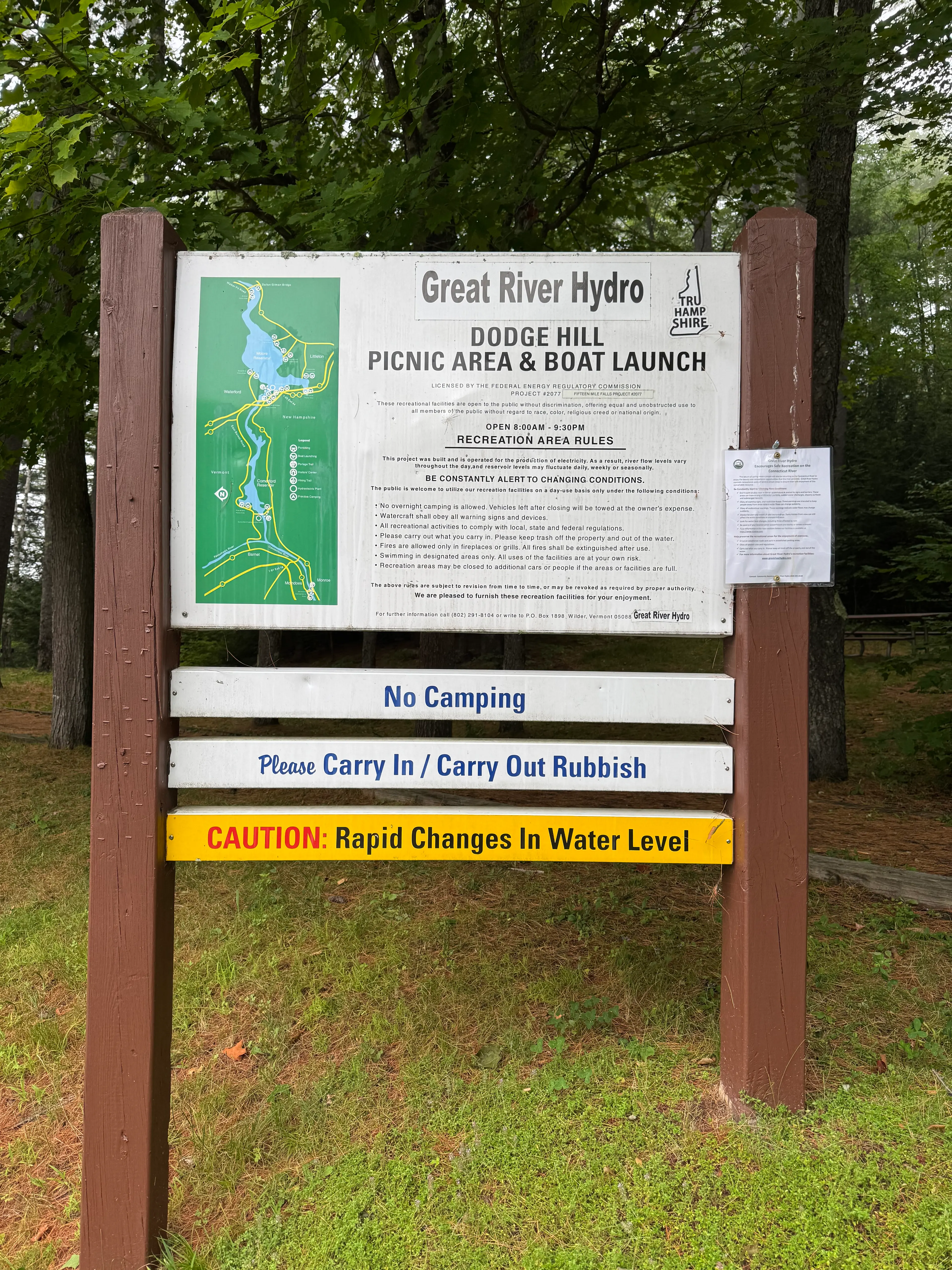
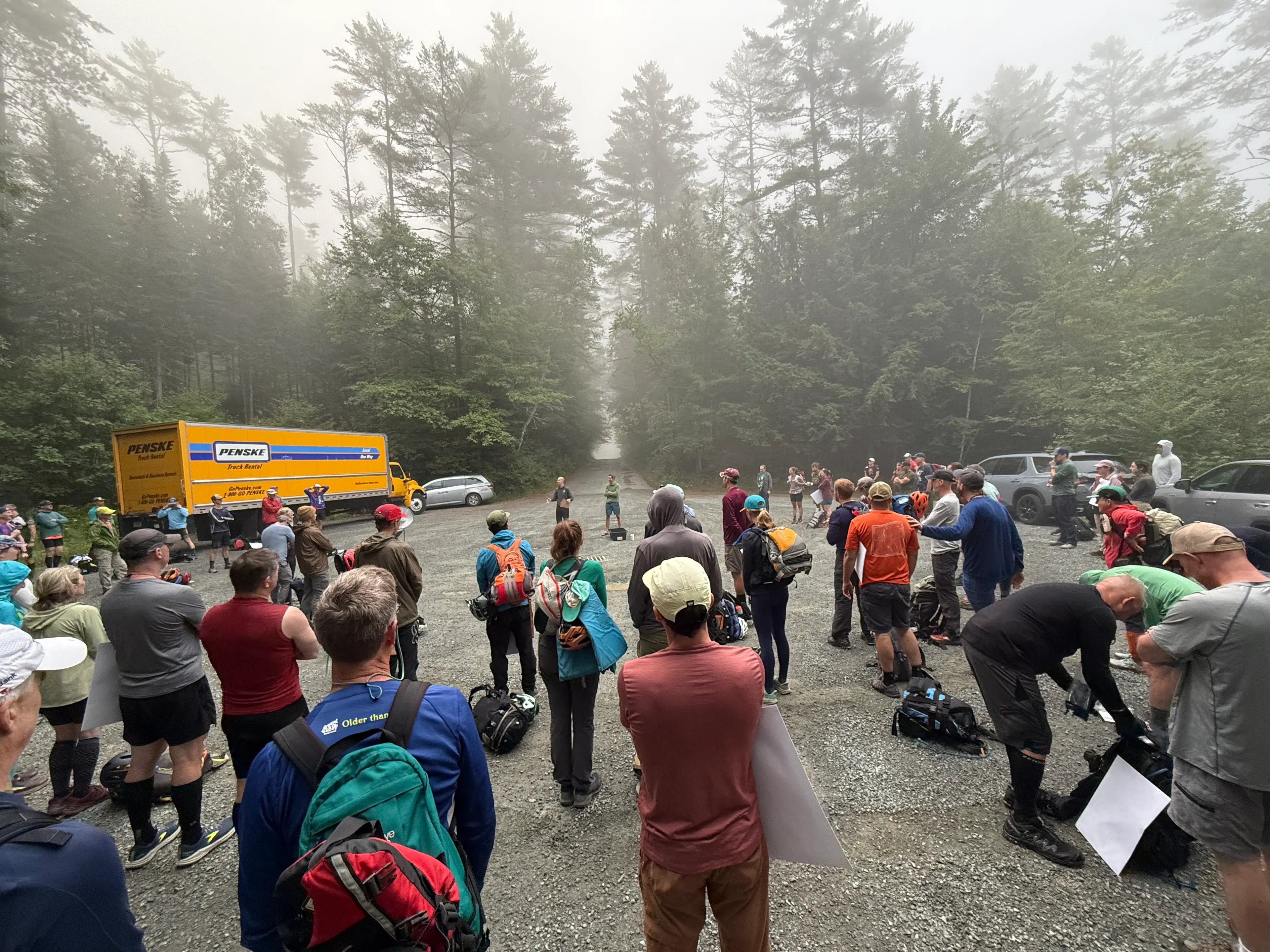
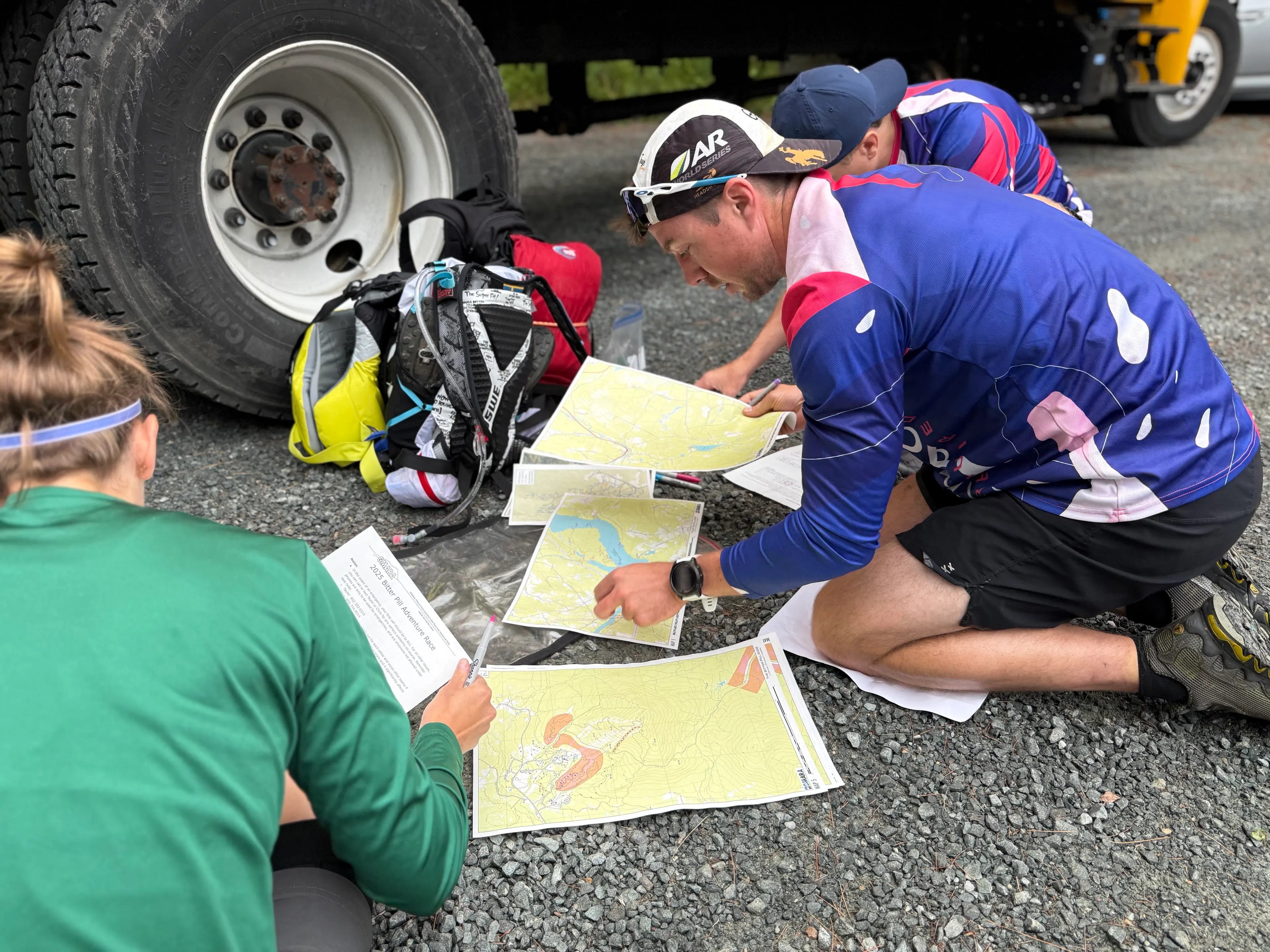
Stage 1: Moore Reservoir Meandering
2 hours 50 minutes
5.1 mile trek / 5.8 mile paddle
Maps were distributed with just 10 minutes to study five substantial map sheets. The course had only two mandatory points - surprisingly few for a GMARA race - both located on what looked like a straightforward bike leg back toward Burke. This meant it was dealer’s choice for tackling the rest of the points, and when Chris mentioned he didn’t think anyone would clear the course, I believed him. GMARA routinely says that, and I rarely see their courses cleared.
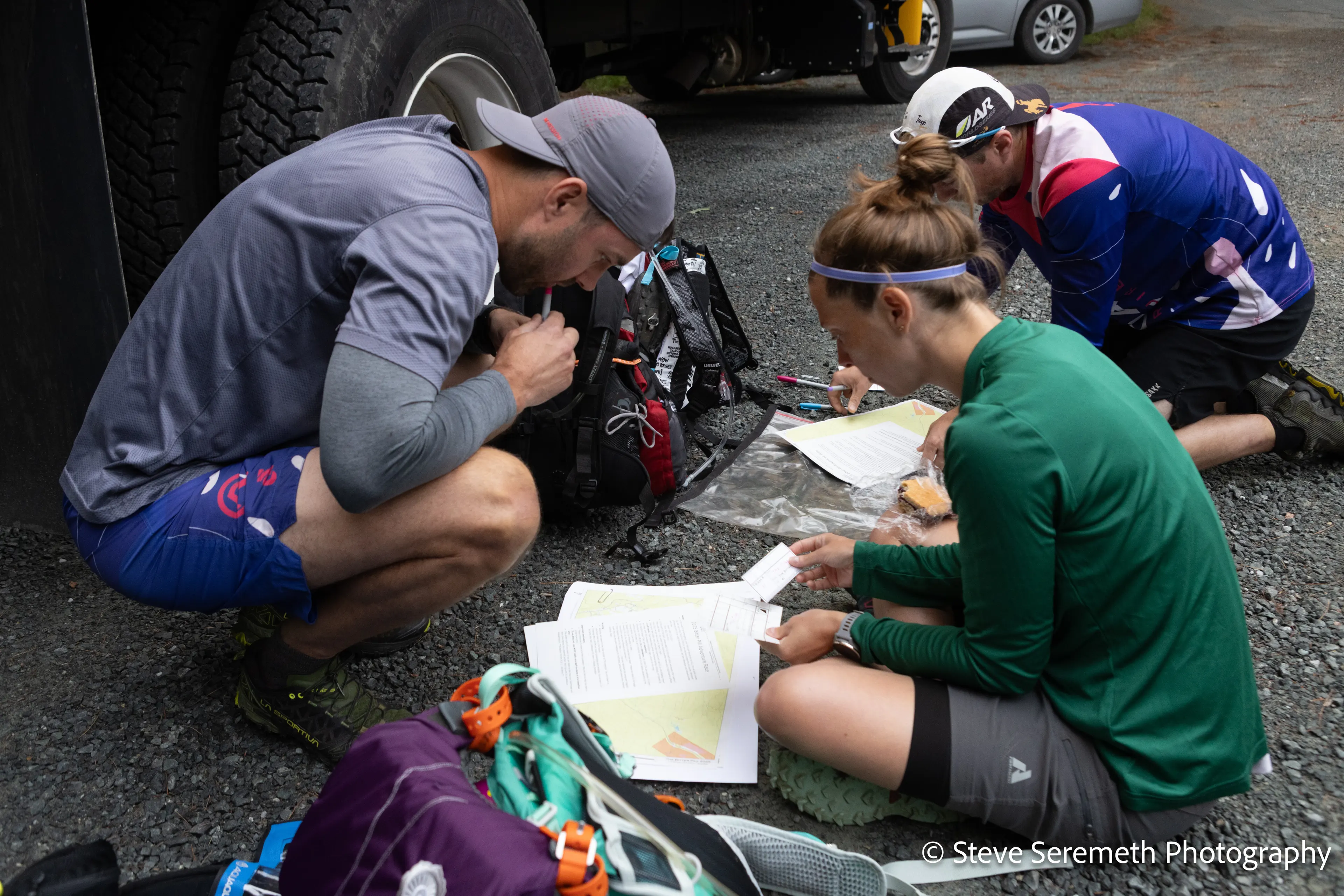
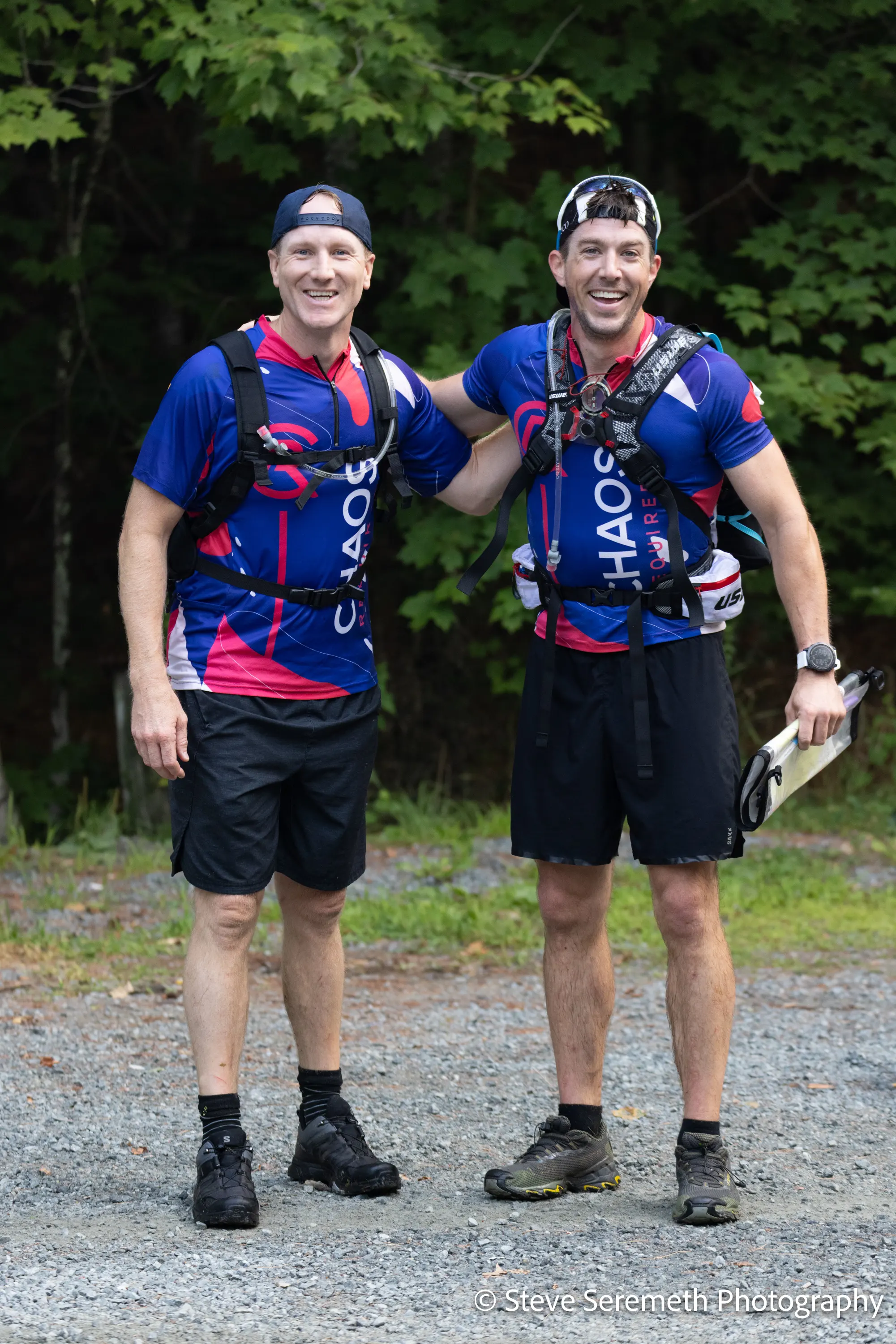
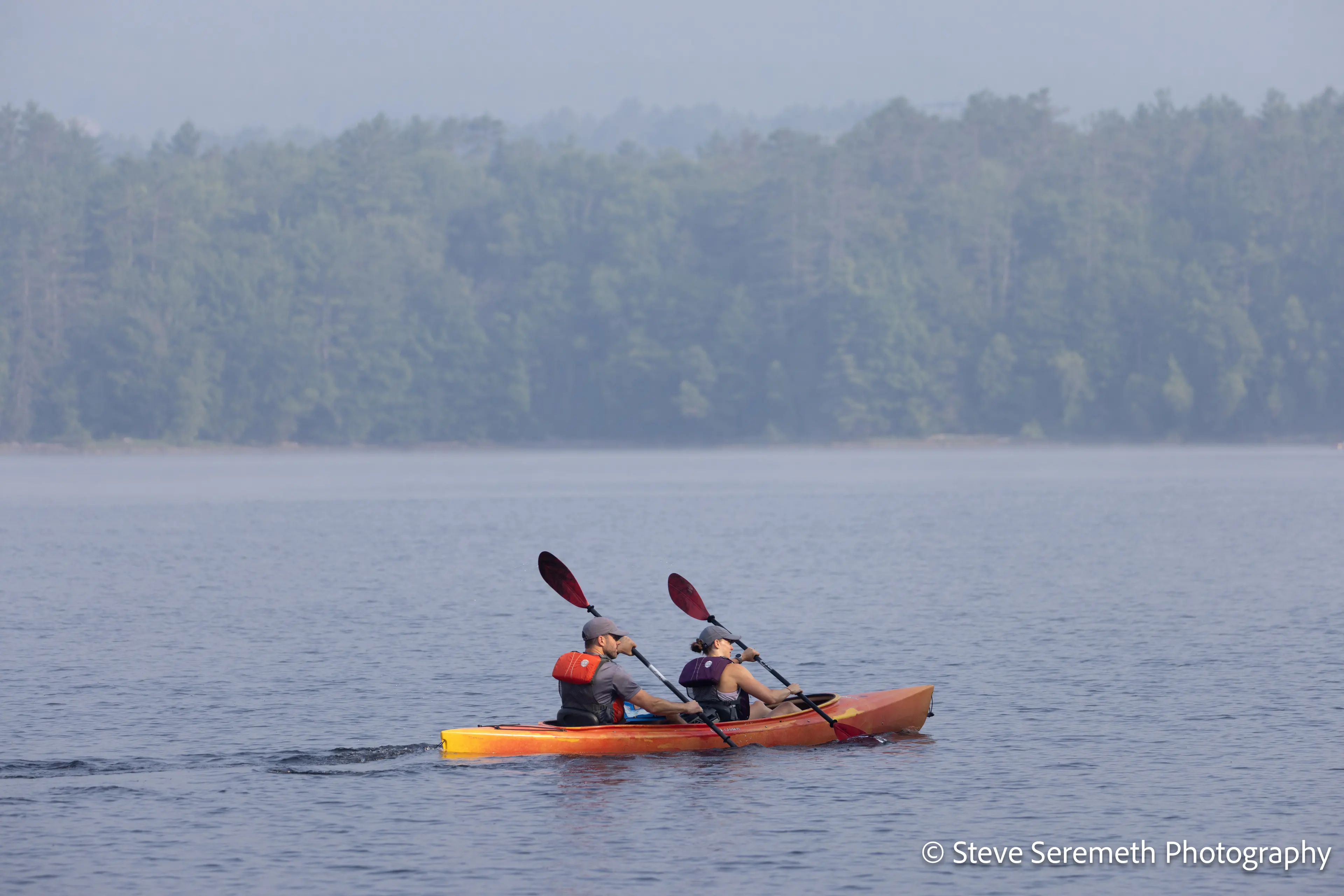
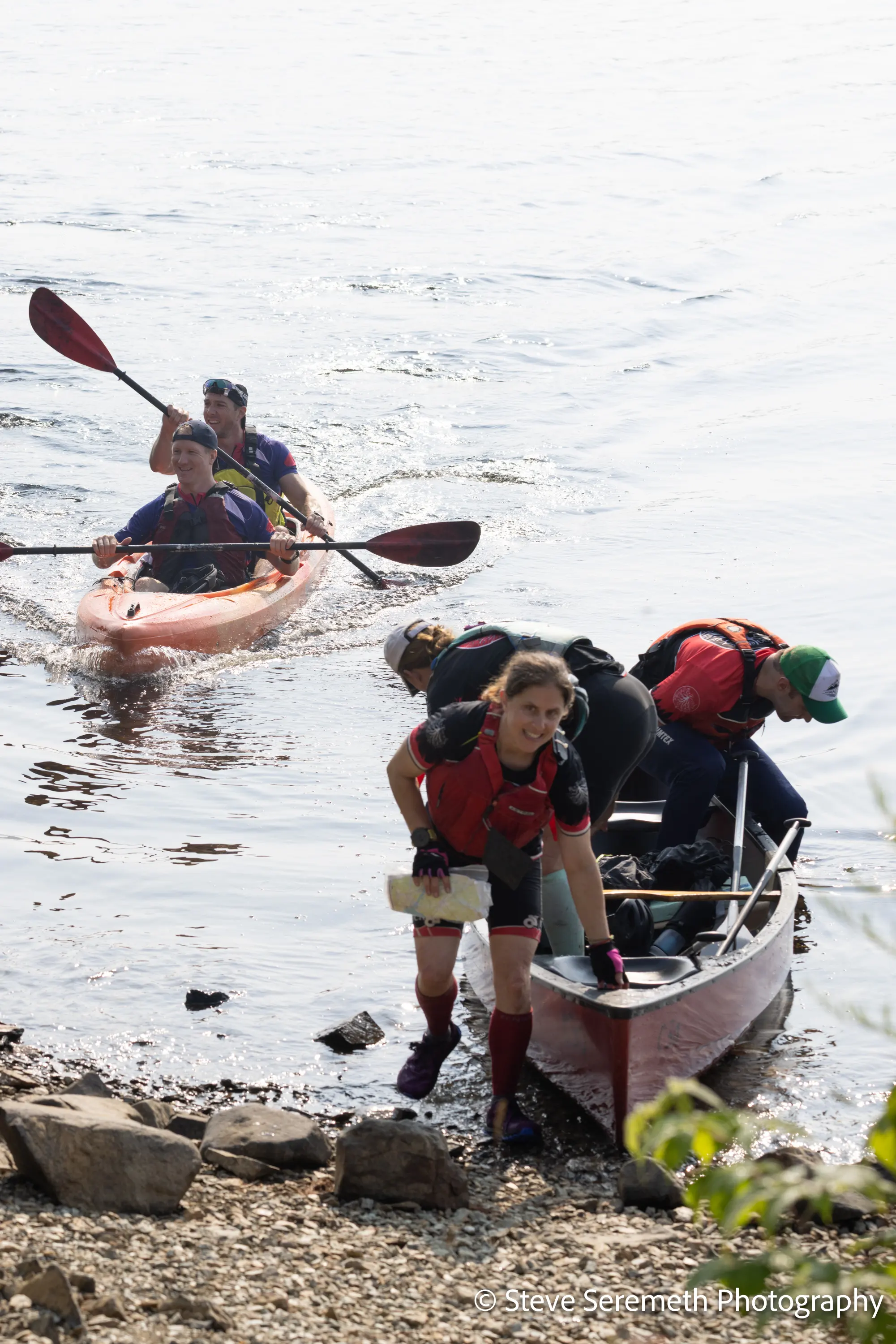
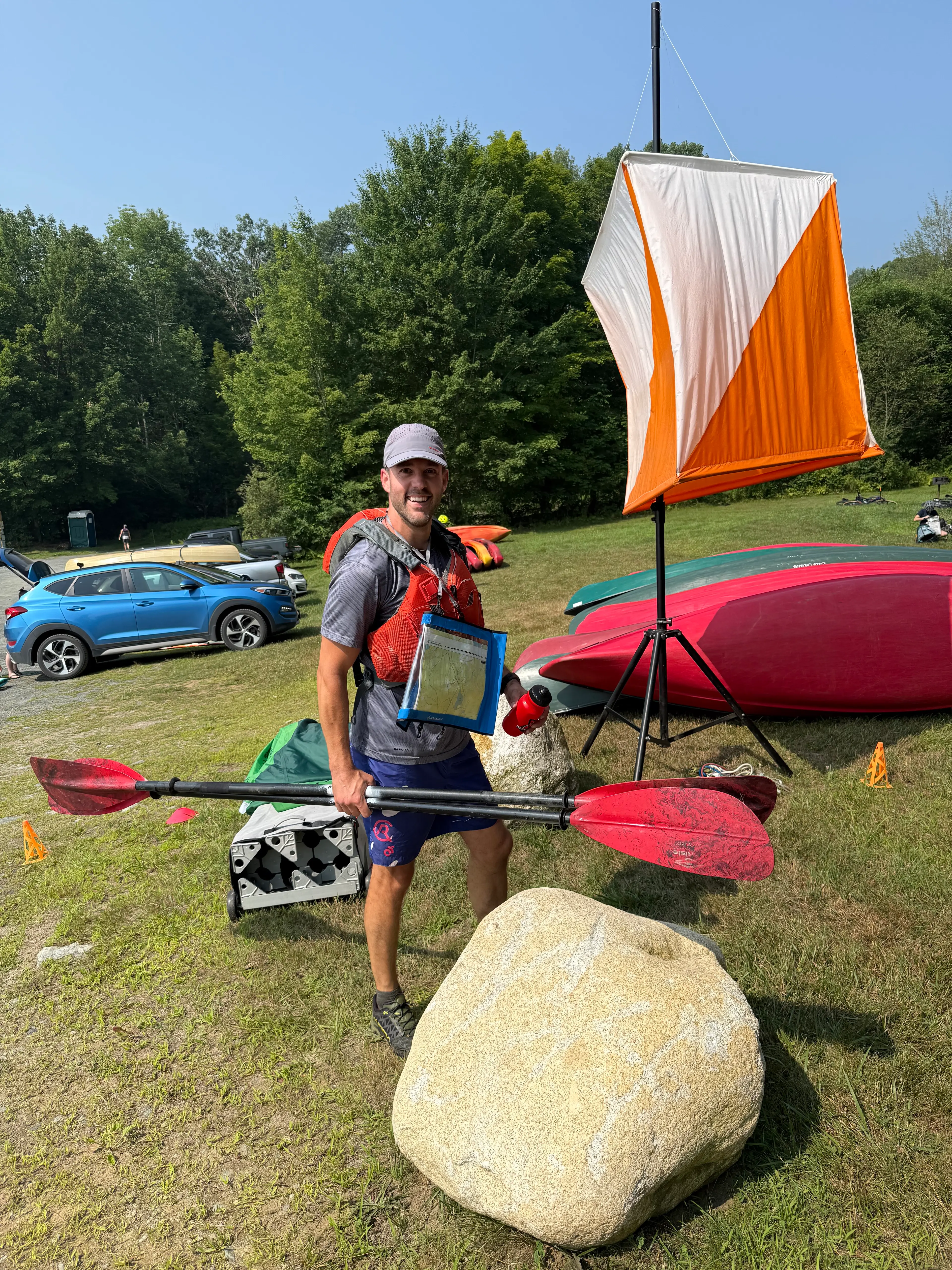
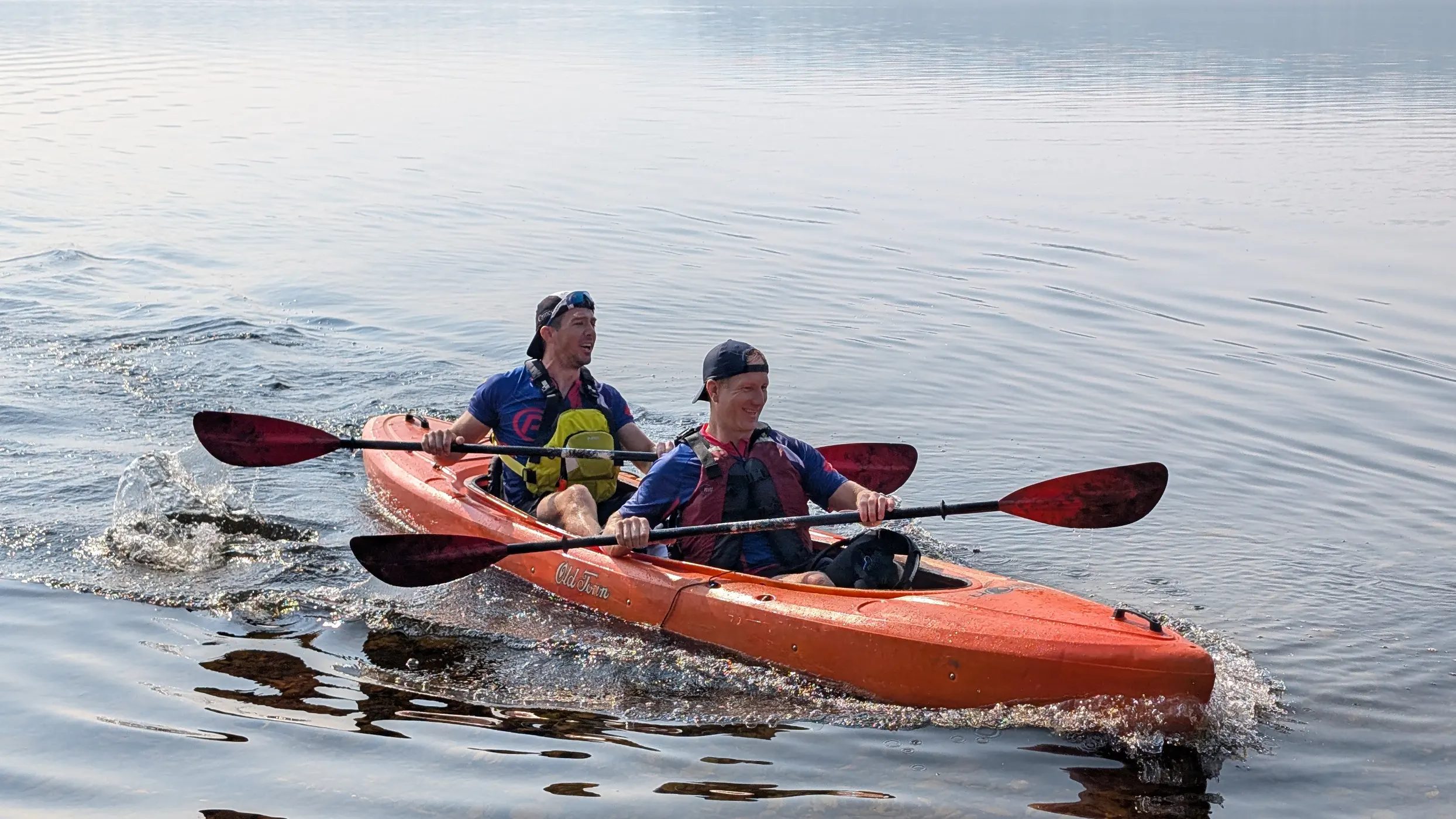
Ben grabbed the passport, I took navigation duties, and we decided to tackle the first section on foot. The plan was to hit CPs 2 through 5, skipping checkpoint 1 since it was nestled deep in the woods. Looking ahead at the maps, Stage 3 appeared to be the key point-acquisition section - much more checkpoint dense - so we wanted to drop this one point early to focus our energy there later.
I joked with Ben that I always make a nav mistake early in races while getting calibrated, and that my brain was still in expedition racing mode from the Endless Mountains race a few weeks back. Sure enough, we decided to run all the way out to the furthest checkpoint first, and I blew right past it.
“I think we just ran past it,” Ben called out, and he was absolutely right. We burned about 10 minutes backtracking, but I told him that was my one nav error for the day - now we were calibrated.
Working our way backwards, we hit the checkpoints like clockwork. Everyone was getting stung by bees at one of the beaver dam checkpoints - I took four stings, JP got nailed too. Not ideal, but thankfully I’m not allergic. We jogged at a good clip back to the kayaks and popped into the water.
The paddle leg was a clear counterclockwise point-to-point around the lake with two decision points. Checkpoints 9 and 10 could be acquired either on this stage or the next stage on bikes. Keeping close track of our pace, we decided to save them for bikes - it would be much more efficient to tackle them with wheels rather than paddles.
We found ourselves neck and neck with Rootstock Racing the entire paddle, which was surreal. We’re rarely alongside such amazing racers, and we knew they’d drop us as soon as we hit bikes, but it was fantastic chatting with them on the water.
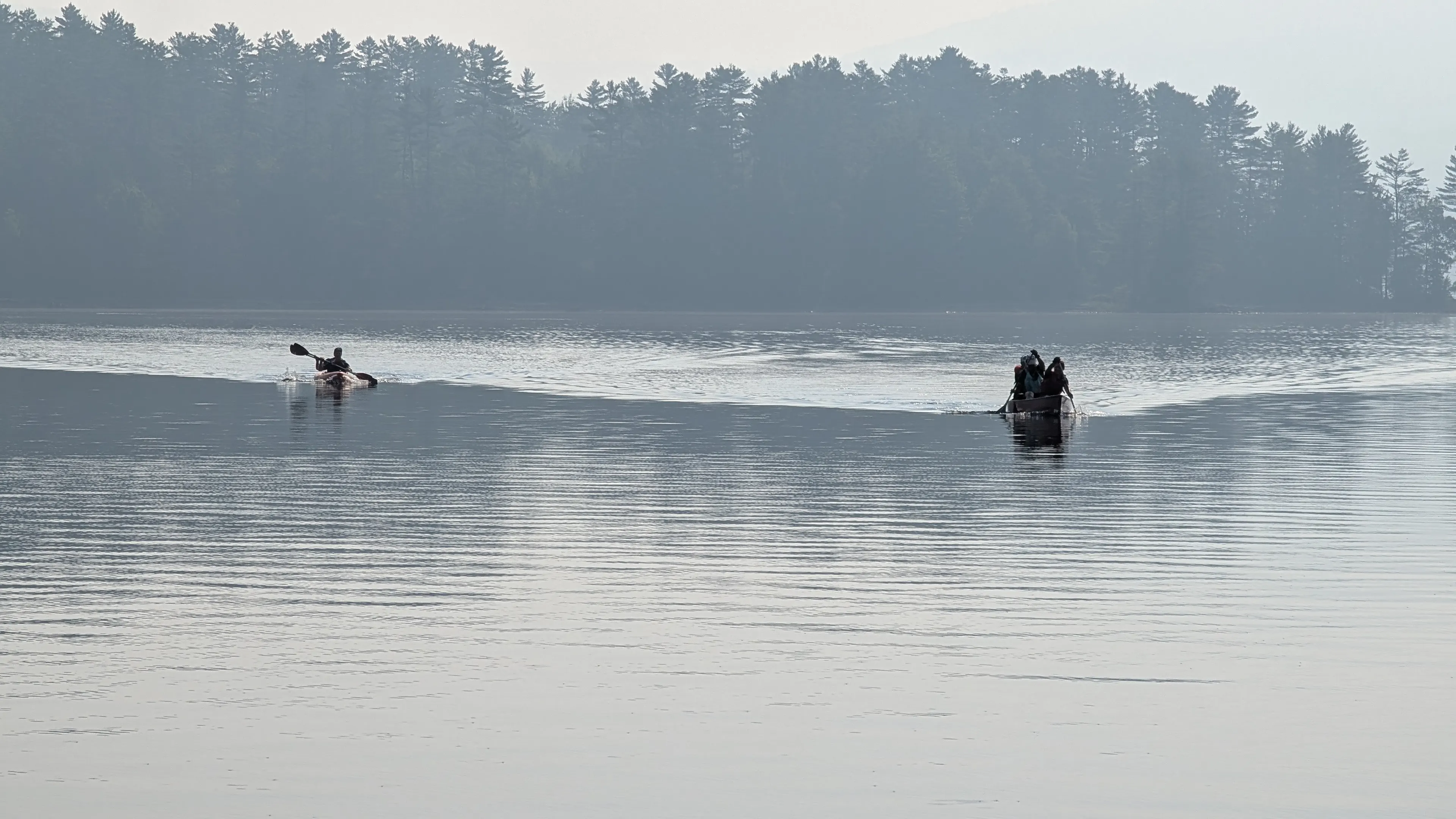
There was a cool sequence where we could split up - I left Ben to paddle around a bend while I ran to three checkpoints on shore, then caught him on the other side. With only one set of maps, I had to memorize the checkpoint locations while he navigated to the pickup spot. During the run, I found myself next to one of Rootstock’s teammates and we were chatting - she mentioned they’d also skipped CP1, which made us feel really validated in our decision since such a tenured team had made the same choice. It was a fun way to divide and conquer.
Stage 2: The Long Haul North
3 hours 20 minutes
21.7 mile mtn bike / 2,800 ft elevation gain
Stage 2 was a big bike leg - minimum 15 miles - starting with a huge sequence of checkpoints including the two we’d skipped from the paddle section. Right off the bat, everything was clicking. All the points were accessible, navigation was on point, and I was loving my new water filtration system - a squeeze bladder that JP had turned me onto. No more waiting for iodine to kick in.
The highlight was swimming to checkpoint 10 - you literally had to swim to reach it, which was a blast and helped cool us down as the day heated up.
After clearing the initial checkpoint sequence, it became a long road grind north toward the mandatory points. Not much shade cover, temperatures climbing toward 90+ degrees, and the sun just constantly beating down on us. Fortunately, the course had water available throughout - never more than 20 minutes from being able to filter, which meant we never had to stress about hydration.
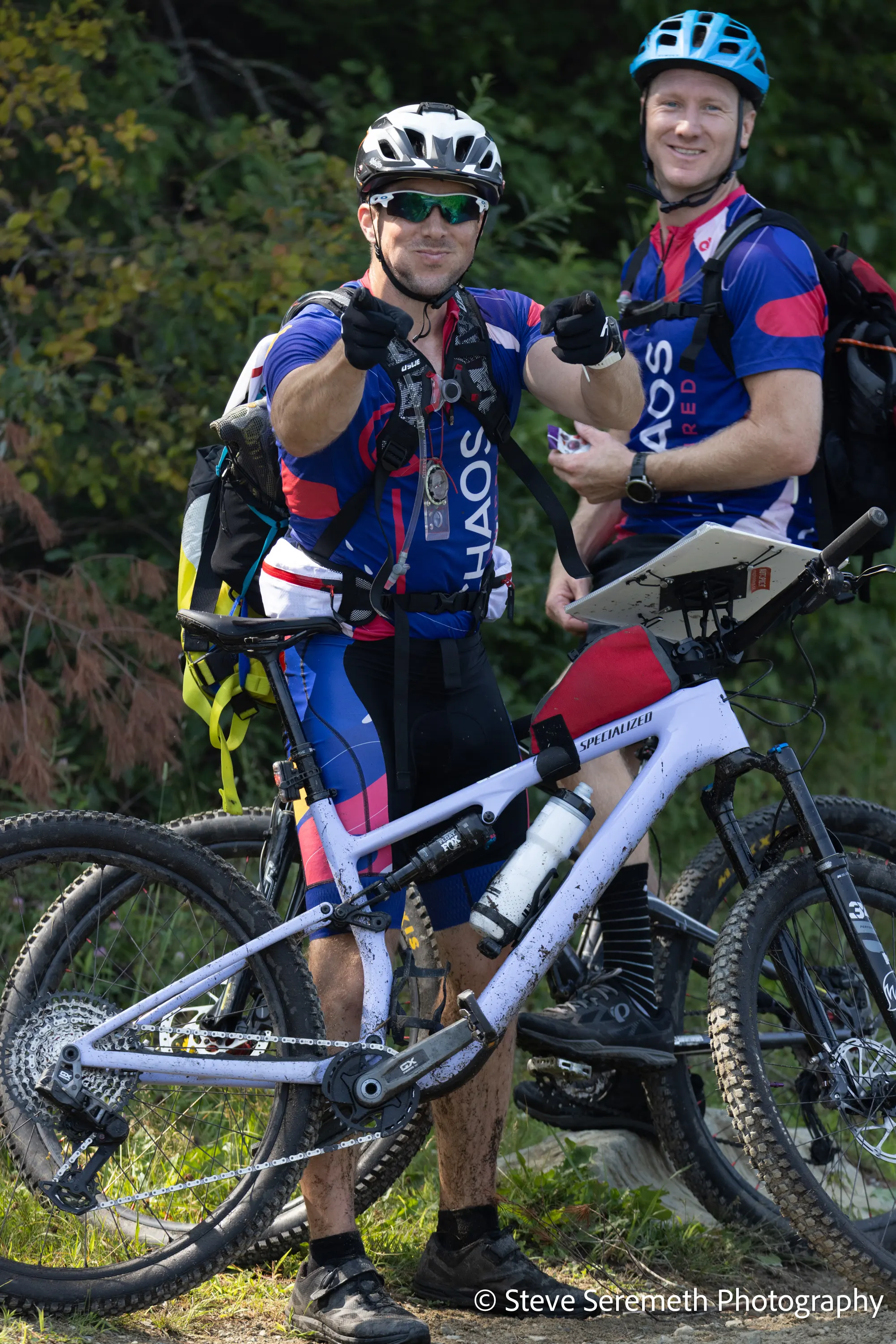
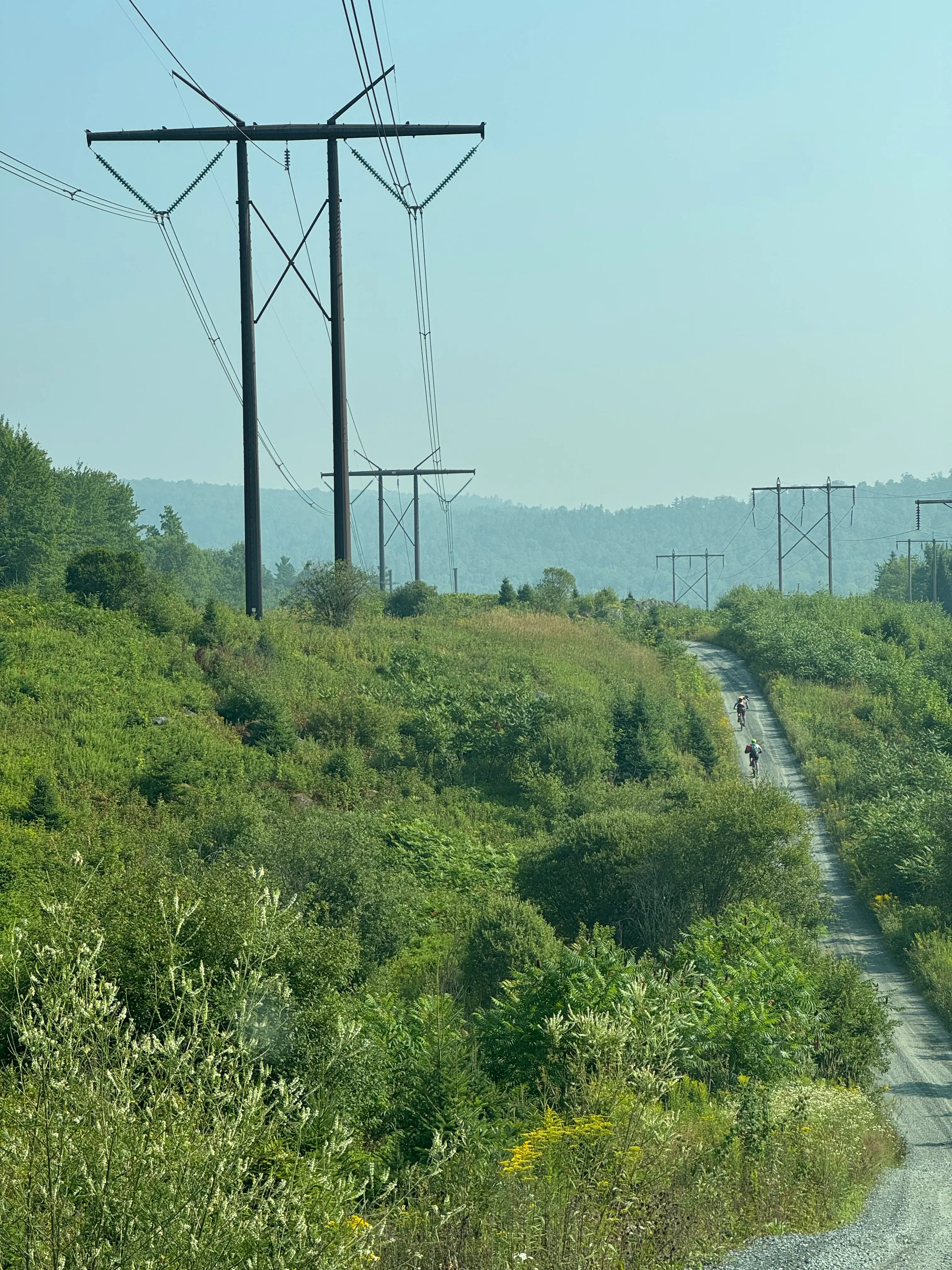
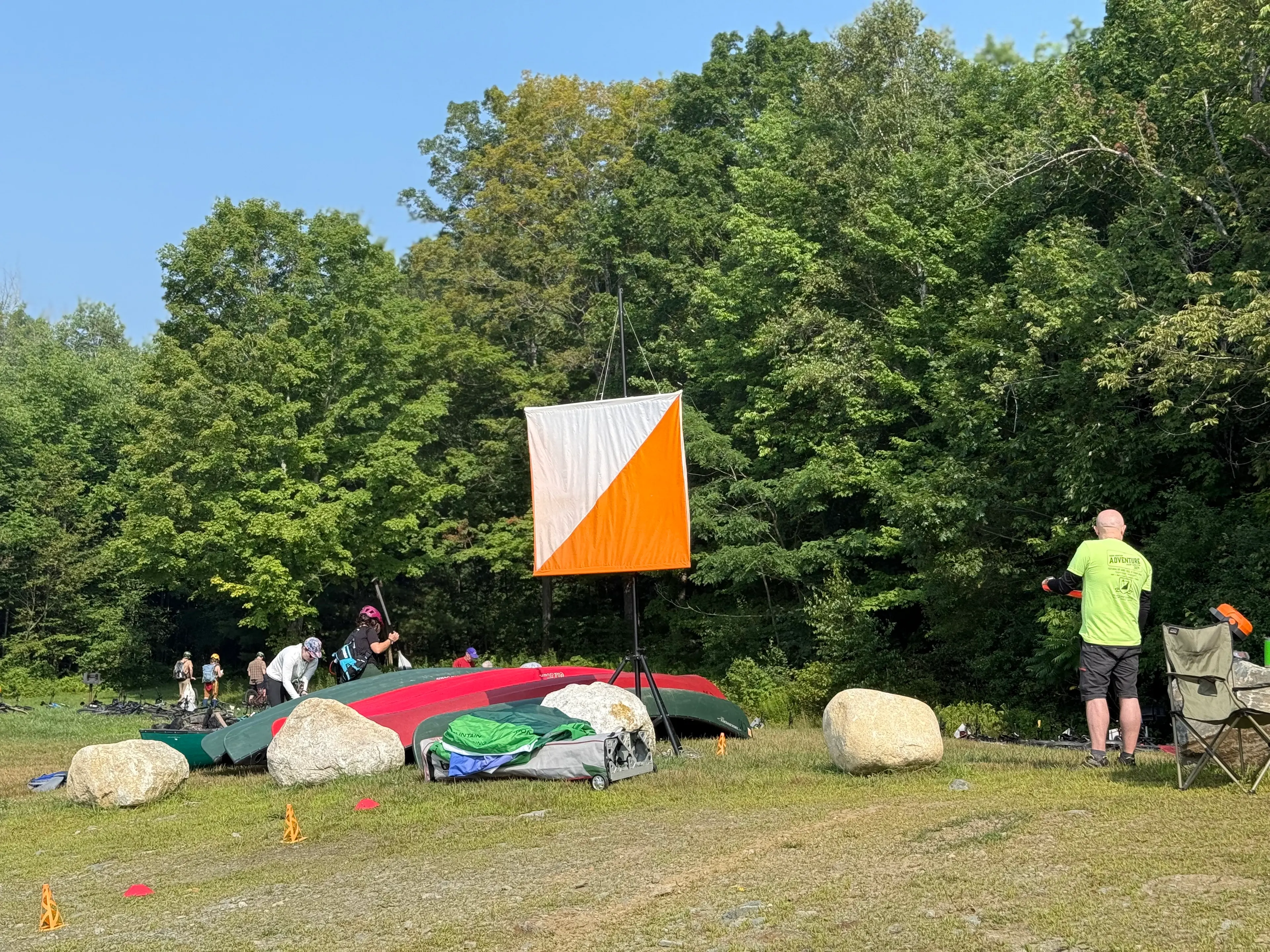
It was a long, consistent climb uphill, but we had great conversations and kept each other motivated. Ben was asking “How do you think we’re doing?” and honestly, I had no idea. Teams were flying past us on bikes - other two-person teams we knew we were competing against - but I had no clue how they’d done on the checkpoint collection.
“They might be fresher because they skipped points,” I told him. “I really have no idea how we’re stacking up.”
It kept us on our toes and pushing hard because we both wanted a strong finish. The climbs were balanced by some fantastic bomber downhills that tested our arms with how bumpy they were, but all in all, it was a fun bike leg through beautiful Vermont roads.
Stage 3: Bushwhacking Brutality
2 hours, 50 minutes
7 mile trek
This was the section Ben and I suspected would make the difference in final standings. Looking at the map, about half the points were easily accessible from the trail system, while the other half required serious bushwhacking through dense Vermont forest. We grabbed some freezer pops - a perfect treat in the heat - and headed into the woods.
There was one checkpoint we could grab either on foot or in the next bike stage - we opted for foot since it felt straightforward. Ben wanted to jog after that to make up time on the downhill, and in hindsight, I should have been more aware of how the heat was going to affect us. I should have slowed us down more.
About 20 minutes in, Ben really started to degrade. The heat was getting to his body, cramps were kicking in his legs. We immediately started dosing with salt, slowed the pace, and tried to stay in shade wherever possible. I give Ben massive credit - physically he was hurting, struggling to eat even though he needed food, struggling to drink even though he wasn’t feeling thirsty, but mentally he just kept pushing.
The nice thing about 12-hour races is that when you start hurting like that, it’s mentally reassuring knowing the end is the end of the day. You can get into a mindset of “this is going to suck for the next few hours, then I can lay down and have a beer.”
Our original plan was to hit the trail-accessible checkpoints first, then come back for the bushwhacking points. Given how we were feeling, this proved crucial - it gave us options to start dropping points in favor of making sure we got back to the transition area by 3pm.
The race instructions said teams needed to be in TA 2/3 to start the trek by 3pm or they wouldn’t be allowed to continue the trek and would have to skip to the final stage. I interpreted this as probably needing to be OUT of the trek by 3pm, since it looked like a tricky climb back that could take significant time. We aimed to get out by 3pm, so we would have plenty of time to hit optionals on the way back and not risk coming in late.
The bushwhacking was thick, dense, and brutal. I felt pretty dialed in navigationally, which was good since the brush was pretty killer. There were several times I told Ben “I’m just going to drop us right on these points” and made it happen with precise bearing and altimeter work.
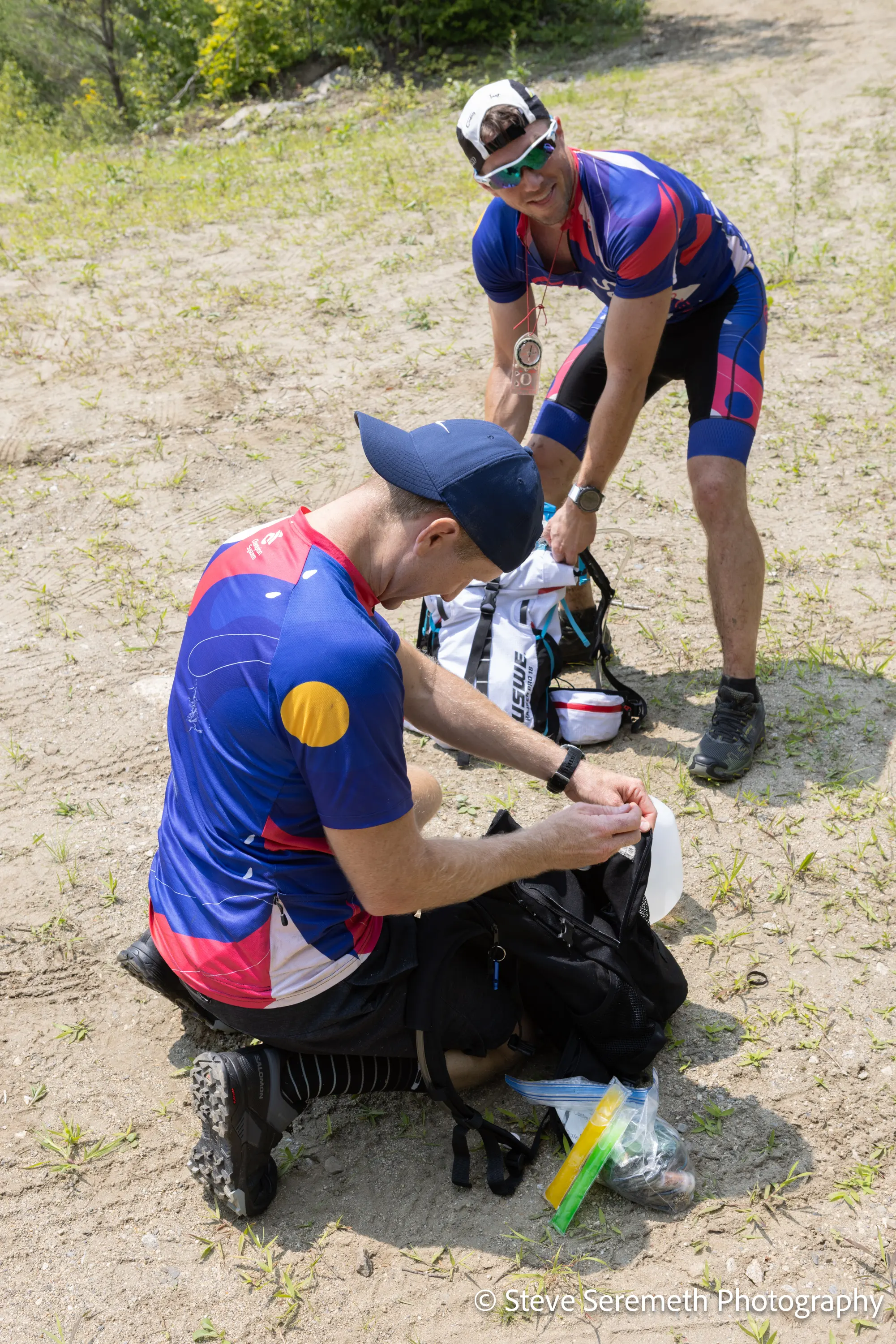
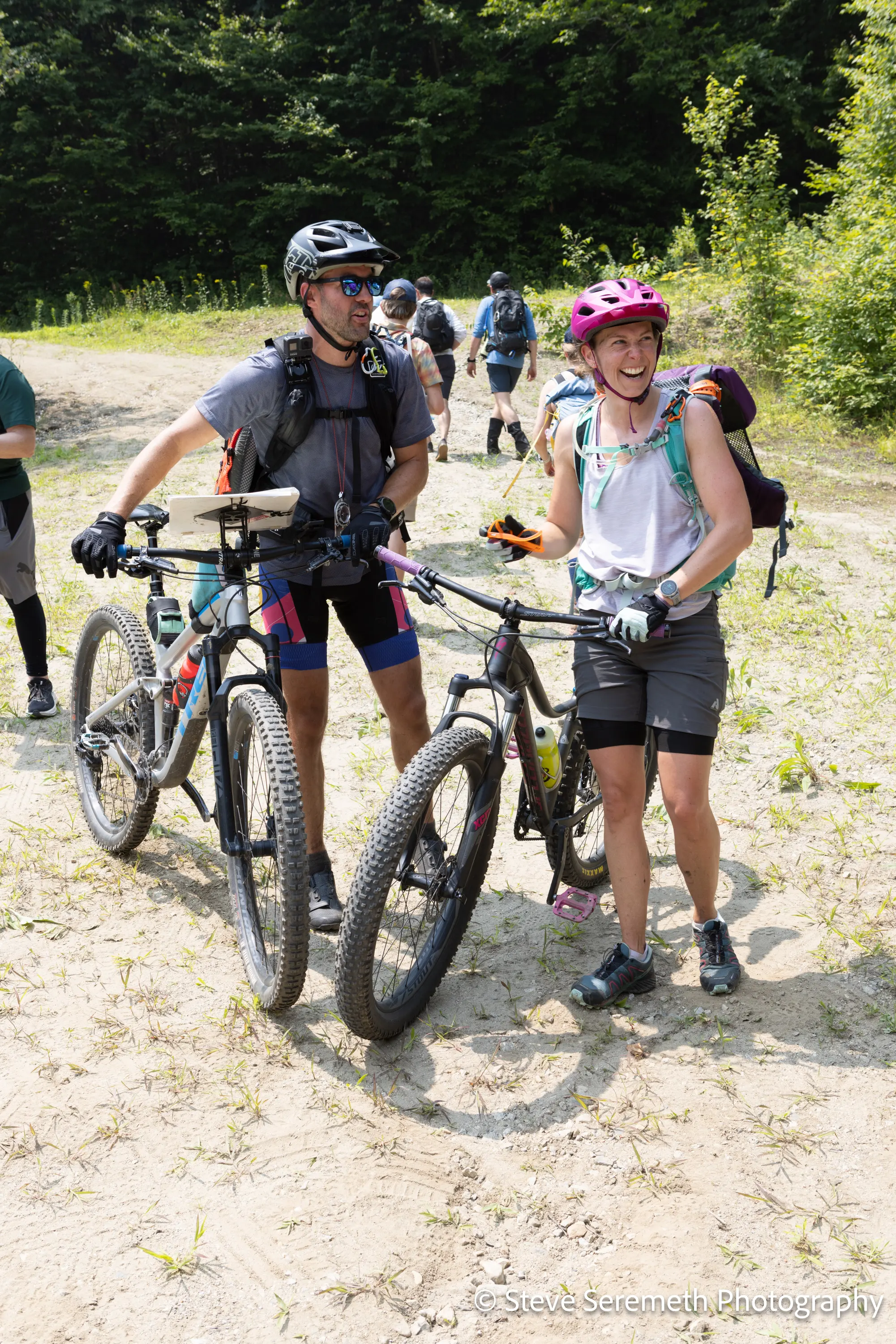
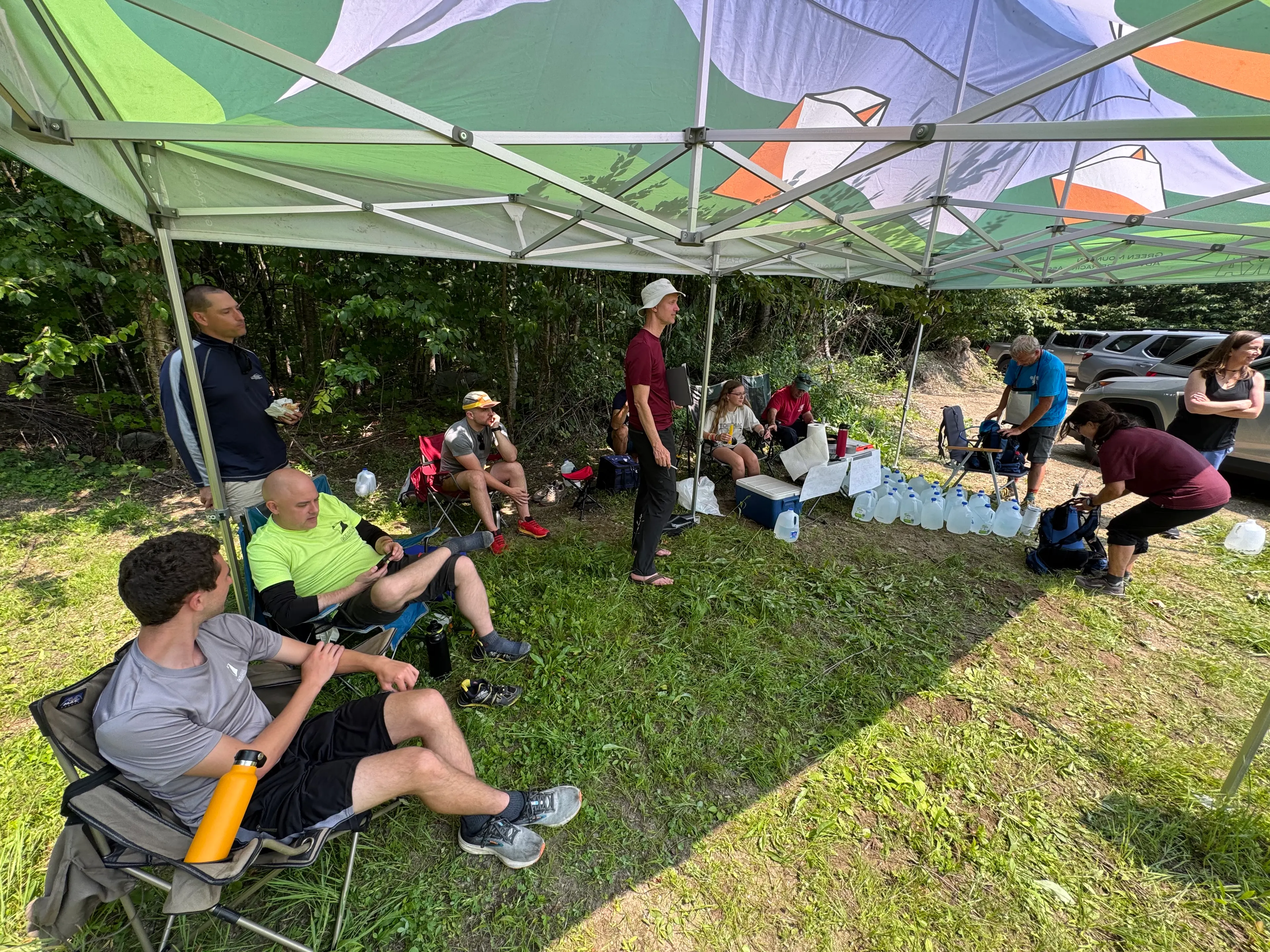
My favorite checkpoint of the entire course was on this leg - you had to walk up a stream to reach it. Beautifully placed, fun to get wet, and the water helped cool us both down. We didn’t mind getting soaked because it dropped our core temperature.
We rolled back into the transition area right at 3pm, saw Colleen and JP in high spirits despite JP losing his map bag somewhere on course. We filled with treated water before gearing up for what we knew would be a beefy bike ride back.
Stage 4: The Final Push Home
2 hours 35 minutes
10.6 mile mtn bike / 1,920 ft elevation gain
Stage 4 was the final big bike leg back to Burke Mountain Hotel. A huge climb - 800-900 feet of relative elevation gain, but with all the ups and downs we put in over 1,800 feet of climbing. Much shorter than the previous bike leg, but just a long, grinding ascent.
The sun was dropping now, so the way it hit the trees provided much more shade to escape into while biking. As we got back toward Burke, we were excited knowing we’d hit some cool biking trails with checkpoints before the finish.
In the Burke Mountain ski area, we hit some gnarly checkpoints - the first two were up ski slopes requiring us to hop off bikes and do serious scrambling late in the day. Ben was awesome, pushing as hard as he possibly could despite everything his body had been through.
I think leaving the trek section at 3pm was crucial. We only had time in the Burke Mountain area for three or four points, and it would have been tight if we’d tried to bushwhack further in Stage 3. By giving up at least one bushwhacking point earlier, we were able to pick up two points on this final bike leg. The bushwhacking had been so brutal that this was definitely a net positive pointwise.
Later we learned teams were coming in up to an hour late after this leg, so reading the cutoff descriptions correctly paid off.
After those ski slope scrambles, we had an awesome downhill section where we could see the finish line from the slopes. We could hear people cheering everyone on. We hit some classic Burke Mountain bike trails, specifically the Shire trail - a fantastic green winder that brought us right back to smaller cross-country trails and straight up to the finish line.
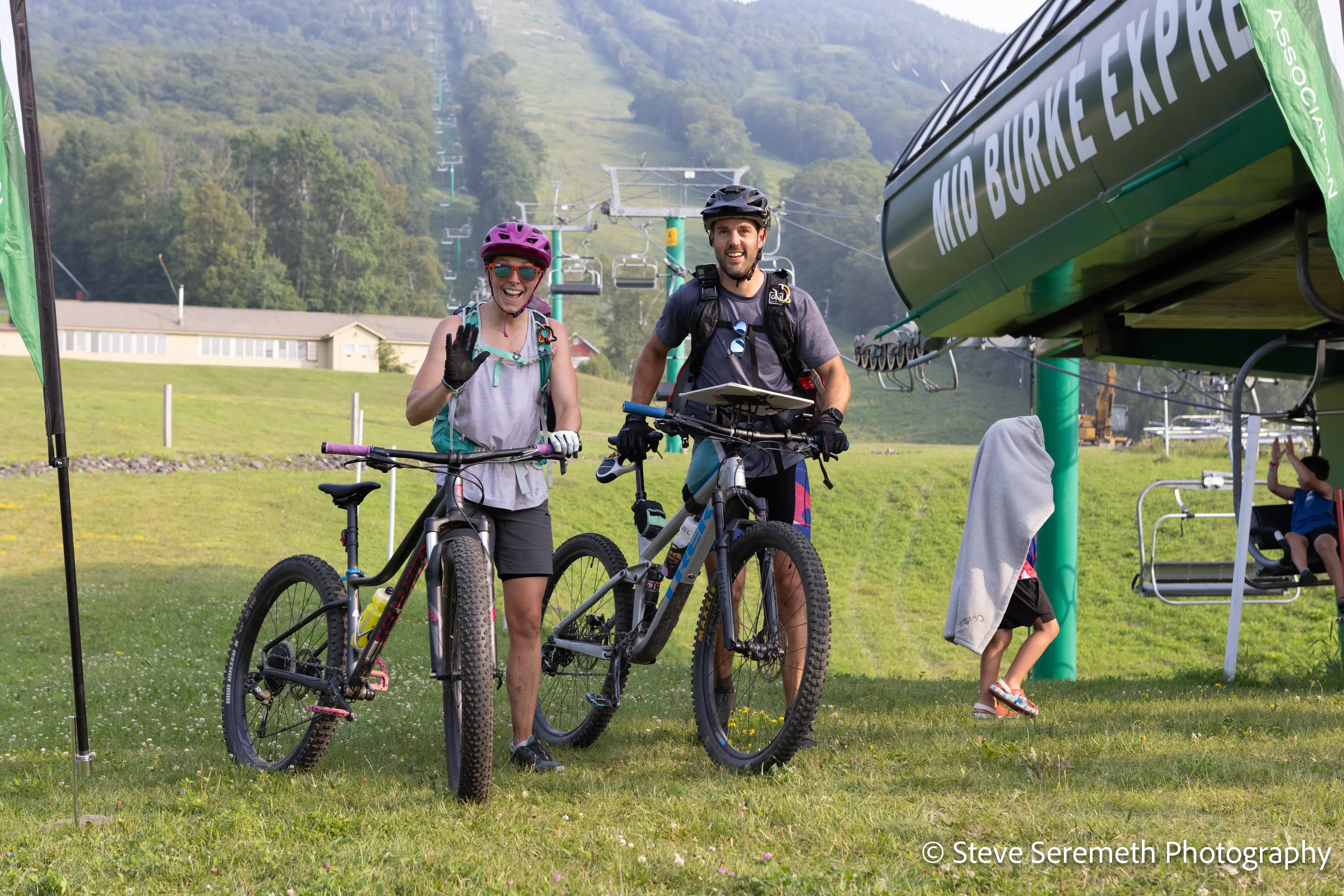
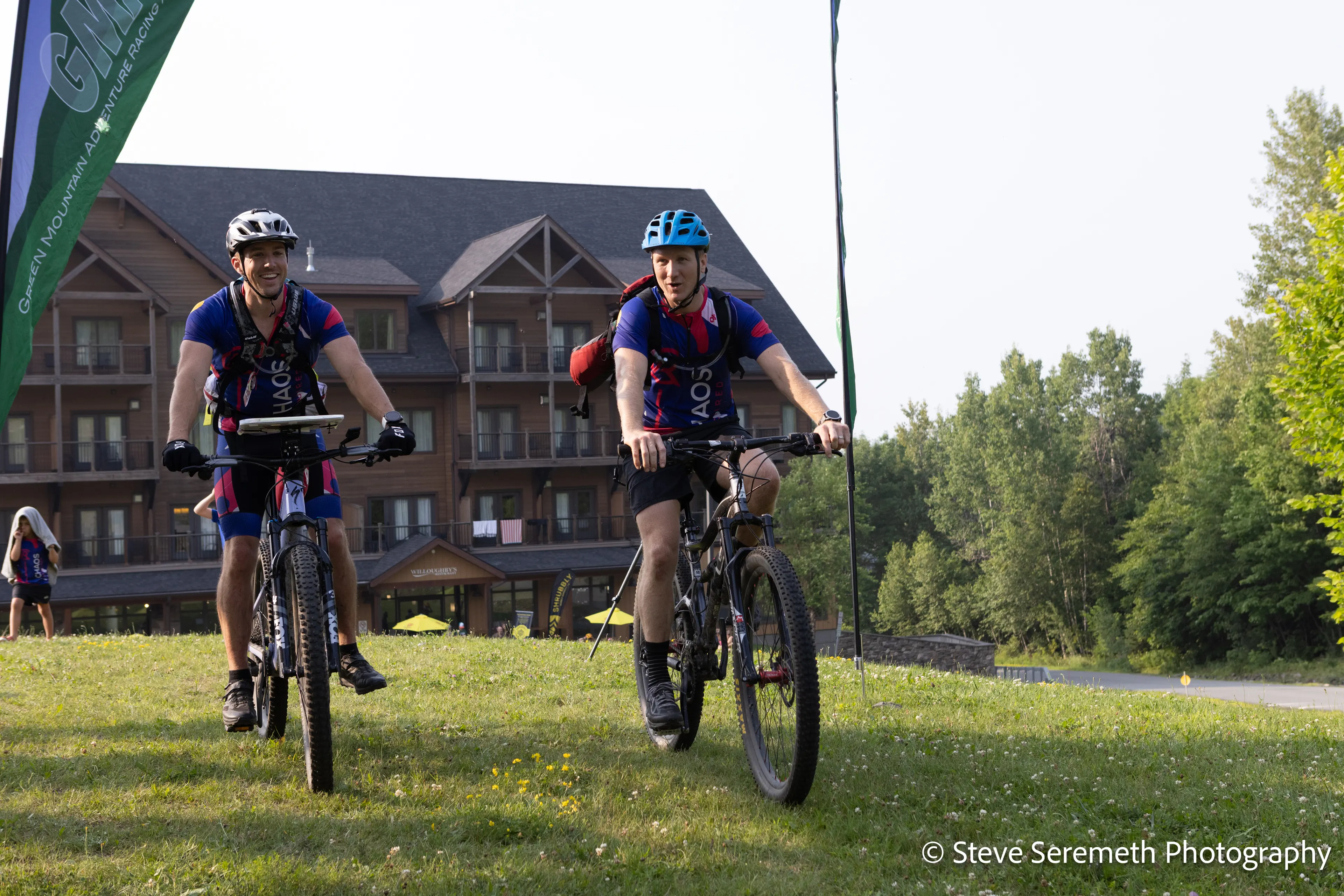
We crossed with 5:51pm on the clock - 19 minutes to spare. I couldn’t think of anything we could have done with those 19 minutes that would have meaningfully changed our point total.
Post-Race: The Results
When we finished, Ben’s body finally realized it was done after 12 hours of pushing hard. He made the smart call to head home, shower, and get some proper rest. He laughed that the 200 milligrams of caffeine he’d consumed in the final hour probably wasn’t helping with keeping the nerves down.
Ben had been an absolutely tremendous racing partner throughout the day. You don’t really know how your body will handle pushing hard for 12 hours until you’ve done it a few times, and the only way to get better is by consistently doing it. When he said he’d keep doing these races, I was pumped - he’d clearly caught the bug.
At the results ceremony, they announced a three-way tie for third place in the two-person division, broken by earliest finish time. Then they announced a tie for first and second place, also broken by time.
Second place went to the team we’d consistently seen moving faster than us on bikes throughout the day. As soon as they called their names, I looked at our table and said “There’s just no way we’re up in the rankings here because they were going so quick.”
Then they called our names for first place.
We’d come in 10 minutes earlier and tied them on points, which proved that solid navigation trumps pure speed. Even though we were moving slower, our nav was on point, and we’d made smart tactical decisions about when to push and when to bail on points.
Reflections
It was a beautiful race and a perfect return to GMARA’s Bitter Pill after a few years away. The Bitter Pill holds a special place in my heart - it was my very first adventure race back in 2011, and GMARA puts on an amazing event that welcomes all skill levels.
Burke Mountain was fantastic, and even though Ben wasn’t feeling well post-race, I love watching people push themselves to the limit, then push past that limit and realize there’s more they can give. The fact that Ben immediately started talking about “next time” tells me he’s hooked and will keep pushing in future races.
Great to see family and friends at the finish, great to have Ben officially on the Chaos Required roster with a victory, and great to be reminded once again that smart navigation and tactical decision-making can topple faster teams.